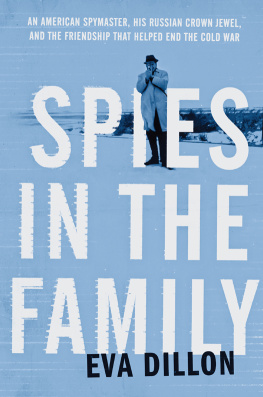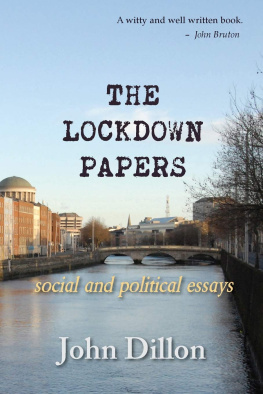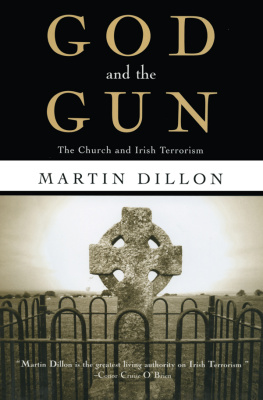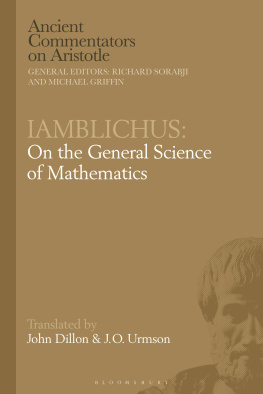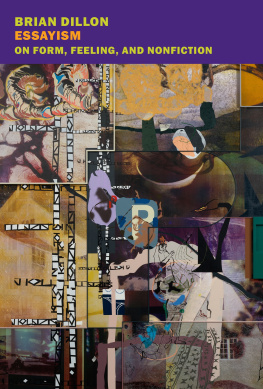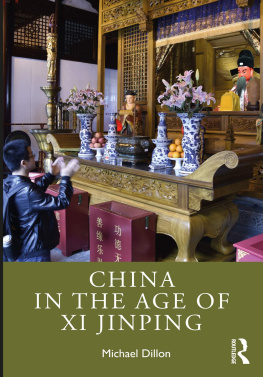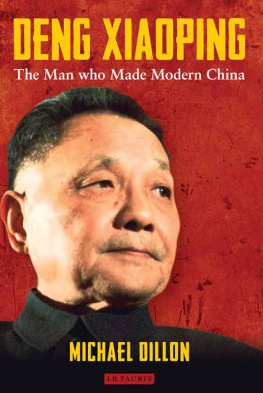Eva Dillon - Spies in the Family
Here you can read online Eva Dillon - Spies in the Family full text of the book (entire story) in english for free. Download pdf and epub, get meaning, cover and reviews about this ebook. year: 2017, publisher: Harper Collins, genre: Non-fiction. Description of the work, (preface) as well as reviews are available. Best literature library LitArk.com created for fans of good reading and offers a wide selection of genres:
Romance novel
Science fiction
Adventure
Detective
Science
History
Home and family
Prose
Art
Politics
Computer
Non-fiction
Religion
Business
Children
Humor
Choose a favorite category and find really read worthwhile books. Enjoy immersion in the world of imagination, feel the emotions of the characters or learn something new for yourself, make an fascinating discovery.
- Book:Spies in the Family
- Author:
- Publisher:Harper Collins
- Genre:
- Year:2017
- Rating:5 / 5
- Favourites:Add to favourites
- Your mark:
- 100
- 1
- 2
- 3
- 4
- 5
Spies in the Family: summary, description and annotation
We offer to read an annotation, description, summary or preface (depends on what the author of the book "Spies in the Family" wrote himself). If you haven't found the necessary information about the book — write in the comments, we will try to find it.
Spies in the Family — read online for free the complete book (whole text) full work
Below is the text of the book, divided by pages. System saving the place of the last page read, allows you to conveniently read the book "Spies in the Family" online for free, without having to search again every time where you left off. Put a bookmark, and you can go to the page where you finished reading at any time.
Font size:
Interval:
Bookmark:
CONTENTS
To Dmitri Fedorovich Polyakov
I n May 1988, in his eighth and final year in office, President Ronald Reagan traveled to Moscow for his fourth summit with General Secretary Mikhail Gorbachev. No other American president had held as many summits with a Soviet leader.
By then the Cold War was winding down. Gorbachev had shown his reformist colors early in his tenure as general secretary, and by 1988 there was far more openness in what had been, since its founding, a grim police-security state. Soviet citizens were beginning to enjoy freedoms (of speech and religion, for instance) that were unheard of in earlier times. Reagan and Gorbachev had struck up a civil relationship that grew friendlier as they made progress on arms reduction. A certain chemistry does exist between us, Reagan wrote in his diary. At one of their meetings, Reagan gave Gorbachev a pair of cuff links engraved with the figure of swords being beaten into plowshares, a traditional symbol of peace.
Walking with Gorbachev on the Kremlin grounds during a break from meetings, Reagan was asked by a reporter about his famous Evil Empire speech of five years earlier. I was talking about another time, another era, he replied. His optimism for the future of the Soviet people was evident in a speech he gave on that visit to students at Moscow State University.
Your generation is living in one of the most exciting, hopeful times in Soviet history. It is a time when the first breath of freedom stirs the air and the heart beats to the accelerated rhythm of hope, when the accumulated spiritual energies of a long silence yearn to break free.
In between formal summit meetings, Reagan pulled Gorbachev aside for a private conversation. The United States would be appreciative if the USSR would pardon a prisoner who had been arrested as an American spy, or trade him for a Soviet spy incarcerated in America.
Gorbachev sent an assistant to look into the prisoners status. When the assistant came back, Gorbachev turned to Reagan. Mr. President, he said, I will have to disappoint you. The man you are asking us to pardon is dead. His sentence for spying was carried out two months ago.
I was heartbroken to miss my fathers funeral. His death at an early age was a shock, and away on a semester abroad during college, I didnt make it back in time. Listening to the details a few days later from my six brothers and sisters, I was struck by the description of the size of the crowd as they arrived at the Cathedral of St. Matthew the Apostle in Washington, DC, that October 1980 morning. The churchs majestic nave was nearly filled.
My siblings wondered who all these people were, they told me later, most of whose faces they did not recognize. As mourners came up to offer their condolences, it began to sink in that all these people were Dads friends and colleagues from CIA headquarters and from his postings in Berlin, Mexico City, Rome, and New Delhi, all the places we had lived growing up. We had never guessed he had so many contacts, so many associates, that so many people might want to see him off. He had kept that side of his life secret.
Mom and Dad had been married at St. Matthews twenty-nine years earlier, and only a small wedding party had been present back then. At the funeral, hundreds of people were crowding in. My father had been such an unassuming, humble person. Could all this really be for him?
The coffin was a simple one, a plain pine box with no ornamentation, and it stood in contrast to the splendor of the cathedral as the pallbearers carried it down the aisle. It had been my fathers wish: no frills, no adornment, his body to be wrapped in ordinary white linen. Pulverem pulveri: dust to dust.
My three teenage brothers carried the coffin along with five of my fathers State Department friends, all of whom we had known well growing up. It was only later that we found out who they were in their own secret CIA lives: David Murphy, chief of Soviet operations; Gus Hathaway, chief of the Counterintelligence Center; Ben Pepper, branch chief, Soviet Bloc counterintelligence group; Bill Friend, Western European Division, then retired; and George Walsh, Dhaka Station chief.
On the floor directly in front of the altar was a large engraved inscription inside a circle: HERE RESTED THE REMAINS OF PRESIDENT KENNEDY AT THE REQUIEM MASS, NOVEMBER 25, 1963, BEFORE THEIR REMOVAL TO ARLINGTON WHERE THEY LIE IN EXPECTATION OF A HEAVENLY RESURRECTION. The coffin was placed on top of the engraving.
George Walsh, Dads best friend from his Boston childhood, delivered the eulogy. We shall remember that he was forthright and direct when he spoke, he said, and yet was kind and gentle. He was scornful of pretension and vanity. We shall remember that he was called upon to shoulder responsibility at an age when most are free to play, yet from childhood, with many occasions to be sad, he was nevertheless known for his enduring good cheer, his unflagging good spirits, and diligence in his many duties to family, to church, to country. Strong in conviction, firm in his faith, his faith inspired faith in others.
Sitting in the front pews of the cathedral listening to George speak, in their daze of bewildered grief, my brothers and sisters were unaware that something strange was happening behind them. Years later, colleagues of Dads told me that two men had appeared with cameras at the side door of the church and started snapping pictures. Someone rushed over and hustled them out. Then, during the Communion, a disturbance took place near one of the confessional booths. Another of Dads colleagues told me that she and a CIA workmate noticed a slight movement of the curtain in the booth. When her companion opened the door, he found a man with a telescopic lens peeking through the latticework; he grabbed the mans arm and marched him out the back of the church.
The picture takers, we later found out, were working with Philip Agee. Agee was a former CIA officer whod become disgruntled with the CIA, left the Agency, and published a book, Inside the Company: CIA Diary, which had blown my fathers cover, as it had those of hundreds of other officers. After the books publication, Agee fled to Cuba and founded a magazine, CovertAction Quarterly, infamous for its Naming Names column, dedicated to further exposing undercover CIA personnel. Such a large collection of high-level CIA people at my fathers funeral was too rich a target to ignore, so Agees men were identifying as many as they could, a windfall for their KGB sponsor.
We didnt know any of this back then. It would be years before the curtain came up enough for us to understand.

W e were pretty sure Mom knew some of Dads secrets, but throughout their lives together she was as silent about them as he was. Occasionally, after he died, she would tell us a few things, but she was never comfortable talking about it, and took most of what she knew to the grave with her when she died in 1997, seventeen years after my father.
We werent completely nave. We had known definitively that Dad was with the CIA ever since the tell-all book Inside the Company identified him five years before his death. But we had all been busy with our lives, and hadnt pursued finding out more about it then. Besides, over our childhood years, moving from country to country, we had become conditioned to accept things as they were explained to us. And why not? There was something wonderful and reassuring about my father. He was calm, warm, trustworthy, and confident, and gave off a sense of steadiness. Even his name was solid: Paul Leo Dillon. We were content with our lives, a happy family moving around the world on Dads assignments over the years.
In 1997, I was forty and well into a career with Cond Nast Publishing in New York City. My brothers and sisters had their own families and careers, and after we buried our mother with Dad at the Culpeper National Cemetery in Virginia, we started clearing out the house in Vienna, Virginia, where we had lived between Dads overseas assignments.
Next pageFont size:
Interval:
Bookmark:
Similar books «Spies in the Family»
Look at similar books to Spies in the Family. We have selected literature similar in name and meaning in the hope of providing readers with more options to find new, interesting, not yet read works.
Discussion, reviews of the book Spies in the Family and just readers' own opinions. Leave your comments, write what you think about the work, its meaning or the main characters. Specify what exactly you liked and what you didn't like, and why you think so.

